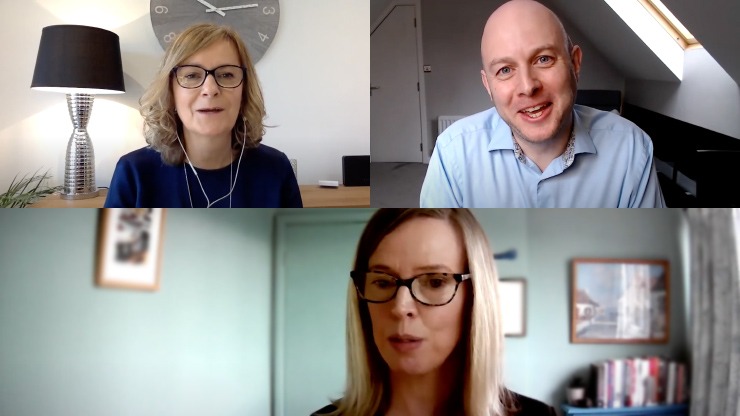- Accessibility
- Request a Call Back
- Quick Drop CV
- Submit Timesheet
- About Us
- For Candidates
- For Clients
- News & Views
- Events
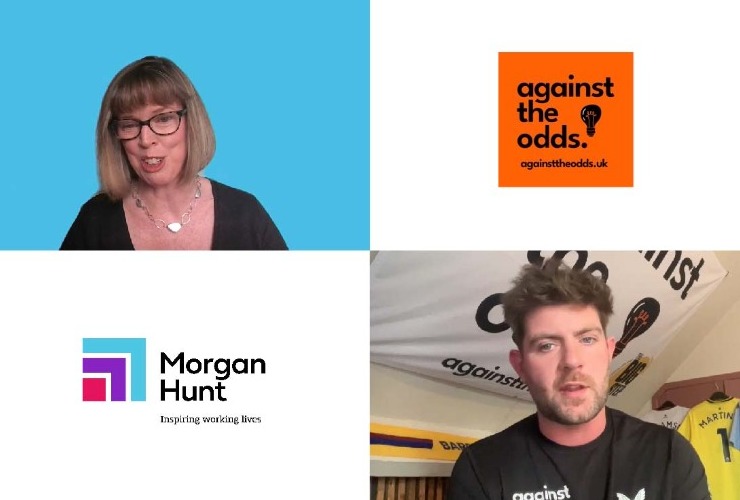
On Wednesday 28th June we ran, ‘From Addict to Advocate: A Personal Story’ , where Aaron Abbott, Business Manager at Morgan Hunt, shared his story from gambling addiction to setting up a social enterprise education young people on the dangers of gambling.
We discuss:
Watch the full recording below
Further Gambling Information
Signs of Problem Gambling
On Thursday 25th May we ran, 'Navigating Restructures: Best Practices for Employers' , aimed at employers considering restructuring or facing redundancy situations.
During the webinar our expert panel discussed the importance of managing the process effectively and minimising the impact on your organisation and employees.
Key Takeaways:
If you or your organisation are interested in outplacement services, we're currently partnering with an expert and can provide you with advice and support. You can click the links below as either an organisation or an individual.
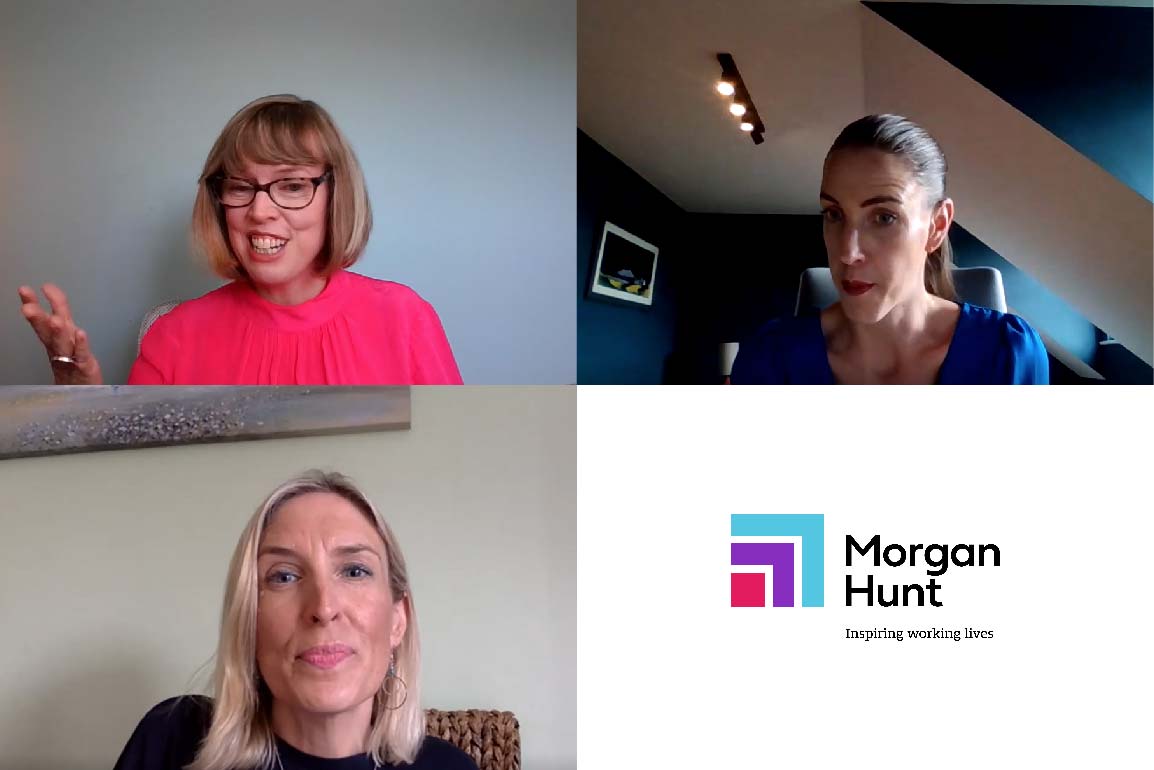
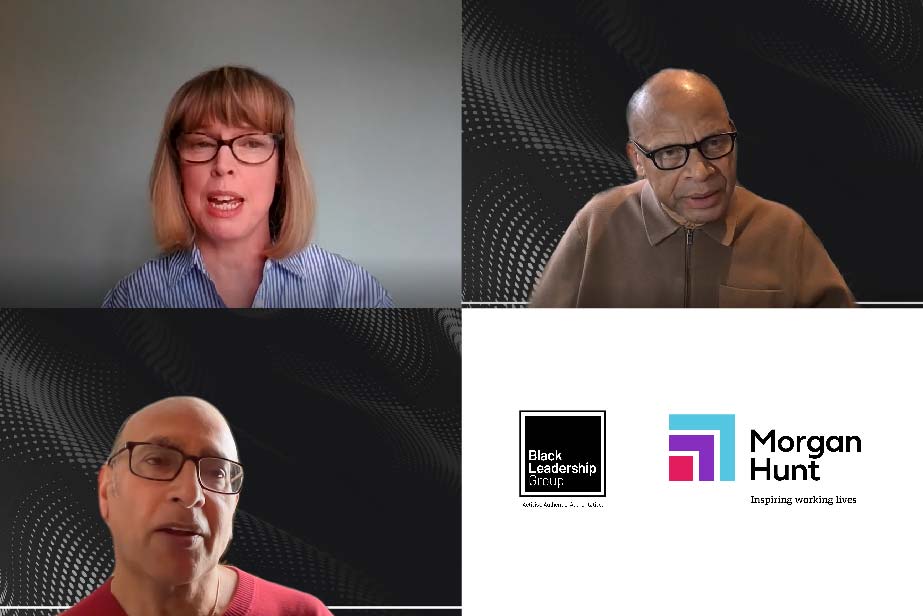
On Thursday 9th March we ran a webinar in partnership with the Black Leadership Group, where we launched the Black Leadership Job Board.
During the webinar we explored how the job board will promote leadership opportunities to black professionals and support employers reach a wider pool of qualified black professionals across the UK – the purpose of the webinar was to launch the job board and discuss why it is needed and how it will work.
The Black Leadership Job Board is available here: www.morganhunt.com/microsite/black-leadership-group/88
Speakers

Clare Keniry
Director of Strategy & Head of Diversity and Inclusion at Morgan Hunt www.linkedin.com/in/clarekeniry
www.morganhunt.com

Amarjit Singh Basi
Co-founder of the Black Leadership Group
www.linkedin.com/in/amarjit-basi-360a0987
www.linkedin.com/company/blackleadershipgroup

Robin Landman
Co-founder of the Black Leadership Group
www.linkedin.com/in/robin-landman-obe-ccmi-2229b214 www.linkedin.com/company/blackleadershipgroup
On 23rd March 2021 Morgan Hunt hosted a webinar on developing an inclusive hiring strategy. We were joined by Amarjit Singh Basi from the Black FE Leadership Group, Ann Allcock from Marshall E-Learning, and Kira van Niekerk from Thomas International.
The session covered both the importance of having an inclusive hiring strategy, as well as the practical steps to implementing one. Watch the full recording below.
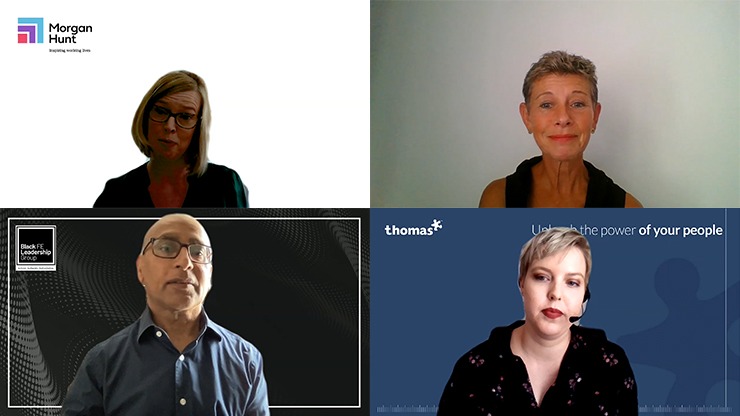
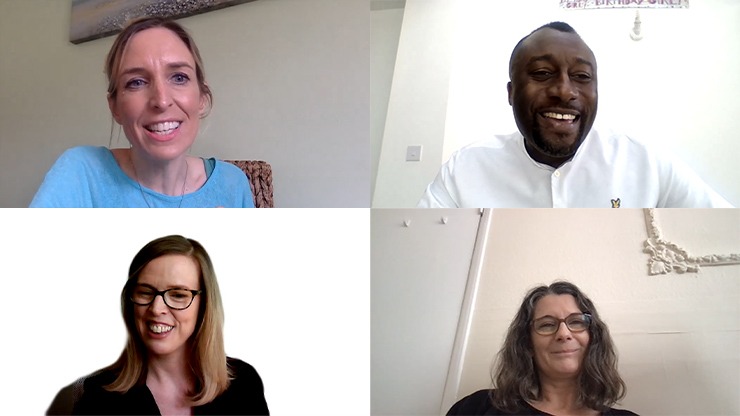
On 25th March 2021 Morgan Hunt hosted a webinar jobseeker wellbeing and resilience. We were joined by Alastair Smith-Agbaje (CEO of Lambeth & Southwark Mind), Dorothée Bonnigal-Katz (Frontline Clinician at Lambeth & Southwark Mind) and Suzanne Penny (Career Coach and L&D Expert. During the session we shared advice for jobseekers on how they can protect their mental health and remain resilient in their job search. Watch the full recording or read our summary below.
Covid-19 has significantly disrupted the UK job market. As most organisations prepared to meet the challenges of the pandemic, growth plans were halted. Normal hiring levels reduced significantly and restructuring in many organisations led to redundancy for many people. As a result, the competition for available roles has increased dramatically, and it is taking many jobseekers longer to secure work.
Although job markets are beginning to pick up, there are many who are still struggling with their job search. The effect of which cannot be underestimated. The experience of submitting applications for tens (sometimes hundreds) of jobs, attending interviews and facing rejection takes its toll on an individual’s wellbeing and ability to stay motivated.
As a jobseeker it is important to take care of your wellbeing and mental health so that you can continue to perform at your best. If you are showing up to interviews stressed, anxious and defeated, it’s more likely that it won’t go the way you hope. You’re far more likely to make mistakes and not communicate the value you can bring to your potential employer. So what can jobseekers do to ensure they don’t burn out?
As well as feeling stressed or anxious, you are likely feeling tired from your job search. When you feel this way, the best thing may be to take a short break. It is important not to put too much pressure on yourself and to listen to what your body is telling you it needs. However, if you decide to take a break, you should still retain some structure and routine to your days. This will help you to still feel productive and positive. It also ensures you don’t lose your momentum. Don’t forget to include healthy habits like exercising and socialising with others.
Dorothée Bonnigal-Katz, who is a frontline clinician for Lambeth & Southwark mind, highly recommends doing something creative as an antidote to stress and anxiety. Having a creative outlet puts you on the side of love and life, helping to enrich and bring positive emotions into your day.
Rejection takes its toll on us as individuals. It makes us question our self-worth and if we’ll ever make it. But it’s important not to dwell on these feelings.
If you were made redundant, remember that it is not a reflection of your skills and expertise. It was the role that was made redundant, not you, so have confidence on your ability. If you were rejected after an interview, know that you were invited to the interview for a reason. Someone saw something in your ability, which should give you confidence.
Viewing the interview as a learning experience can help change your perspective too. Focus on the elements of the rejection that you can control by using feedback to identify areas of growth and improvement.
If you have faced numerous rejection, you may want to take some time out to deal with the feelings of stress and anxiety, as well as build up your resilience again.
Resilience is a resource which we build up and is then drained through the challenges we face. When we feel our resilience is low, we know that we need to take the time to build it up again.
The origin of the word comes from Latin, meaning both rebounding and recoiling. Resilience is our ability to bounce back, but in order to do so we must recoil from time to time. To do this, take a break from the tasks that have been draining you. Remember and reflect on positive reinforcement you have received from others. This will be help you rebuild your sense of value and self-worth.
Negative thoughts, which come as a result of stress, have an impact on how we feel and behave. But improving your mood can be as simple as telling yourself positive stories and affirmations
After having many knockbacks and feeling like you’re not progressing, it can be difficult to remain positive and determined in your job search. To combat negative thoughts that might arise, try creating a mind map of testimonials and positive comments you have received. Refer back to this whenever you need a confidence boost.
Remember that although you have may have receive rejections, you have been invited to interviews because the hiring managers like what they see. With this in mind, try to relax in interviews and focus on emphasising the elements of your CV that your interviewer liked. And don’t forget to be prepared for your interviews. With preparation comes confidence.
Lastly, if you’re feeling anxious in an interview, view it is an opportunity to see if the organisation is a right fit for you. By changing your perspective, the interview becomes an opportunity for you to find the right fit for you. You’ll then feel enabled to have a relaxing conversation about what both you and the organisation bring to the table to determine if it’s a good fit.
By applying the tips above to stay positive and resilient in your search, your chances of getting the job will be improved as you’ll be able to bring your best self to your interviews. However, a positive mindset isn’t all you need to stand out in a competitive market. Here are some tips on how to improve your chances of getting the job:
Overall, it’s important to stay positive and hopeful. A negative mentality will not help you to achieve your goals. Pay attention to the areas that you can improve and listen to yourself if you feel like you need a break. Good luck!
If you’d like to speak to a recruiter for career guidance or help finding your next role, get in touch.
On 24th February 2021 Morgan Hunt hosted a webinar on the power of team coaching titled ‘Building inclusive teams for growth’. We were joined by team coaching experts Lucy Widdowson and Paul J Barbour, who shared how team coaching can be used to develop inclusive teams which benefit from increased performance.. Read the summary of the webinar below or watch the full recording at the bottom of this page:
Following the events of 2020, the importance of diversity and inclusion for organisations is being recognised more and more. Organisations are becoming actively engaged in building diverse and inclusive workplaces as a result of demands from staff for greater representation, but also due to the proven benefits for organisations. Benefits include:
It is clear that, for organisations, there is a lot to be gained, but how can improved diversity and inclusion be achieved? There are several factors that influence the diversity and inclusion of a workplace, but Lucy Widdowson and Paul J Barbour suggest developing more inclusive teams through team coaching is a good place to start.
When we talk about the diversity and inclusivity of teams, what do we mean? Diversity describes how team members are different from each other, improving the range of ideas and perspective brought to the table. Inclusivity, however, describes the style of interaction (the actions and strategies) that help people feel included, which is essential for effective teams and organisations. Diversity improves the variance of ideas, but inclusivity is what enables these thoughts to be shared.
The diversity of teams can be improved through recruitment, whereas inclusivity can only be built through a focus on the interpersonal relationships of teams. In order for team members to feel included, psychological safety and trust must exist within the group. Individuals must believe that the group is a safe place for interpersonal risk taking. Only then can members feel truly comfortable to contribute and share their ideas.
So how can inclusivity be improved? In the team coaching sessions that Lucy and Paul run with organisations throughout the world, they work with teams to develop empathy and to determine the shared purpose, values and beliefs of the group. Empathy leads to understanding and having shared goals ensures the group moves together in the same direction. One exercise they encourage people to use to build empathy is to watch the news, then try to understand a person who has an opposing view to you and think about what you would say to them.
“Coaching that helps teams work together, with others and within their wider environment, to create lasting change by developing safe trusting relationships, better ways of working and new thinking, so that they maximise their collective potential, purpose and performance goals”
Building psychological safety and trust can be achieved through a number of team coaching methods and exercises. Through their work, Lucy and Paul have defined 7 characteristics of high performing teams. These are:
For improving inclusivity, Lucy and Paul recommend focussing on the awareness and relatedness. Here are some exercises you can use to maximise these characteristics:
Paul and Lucy also suggest using scenarios to open honest conversations about how people would respond. Through this people can feel safe to share without judgement, as well as be corrected if their response could be improved. Here are some scenarios for you to use and discuss with your teams:
Amy in a team meeting uses an incorrect terminology for a colleague in another team saying ‘Jo the blind person’. What do you do?
Every time Amin makes a suggestion, another team member Tom ignores them and speaks over them. What do you do?
You have a culture of all going to lunch together when in the office or spending time chatting informally when working virtually at the end of the day on a Friday. Ray doesn’t join in. What do you do?
By applying some of the techniques, you can begin to create more trust within your teams which will improve communication and performance. If you would like to learn more about team coaching and how it can be used to develop high performing teams, Lucy and Paul recently published their first book titled “Building top performing teams”. You can purchase a copy via the links below.
